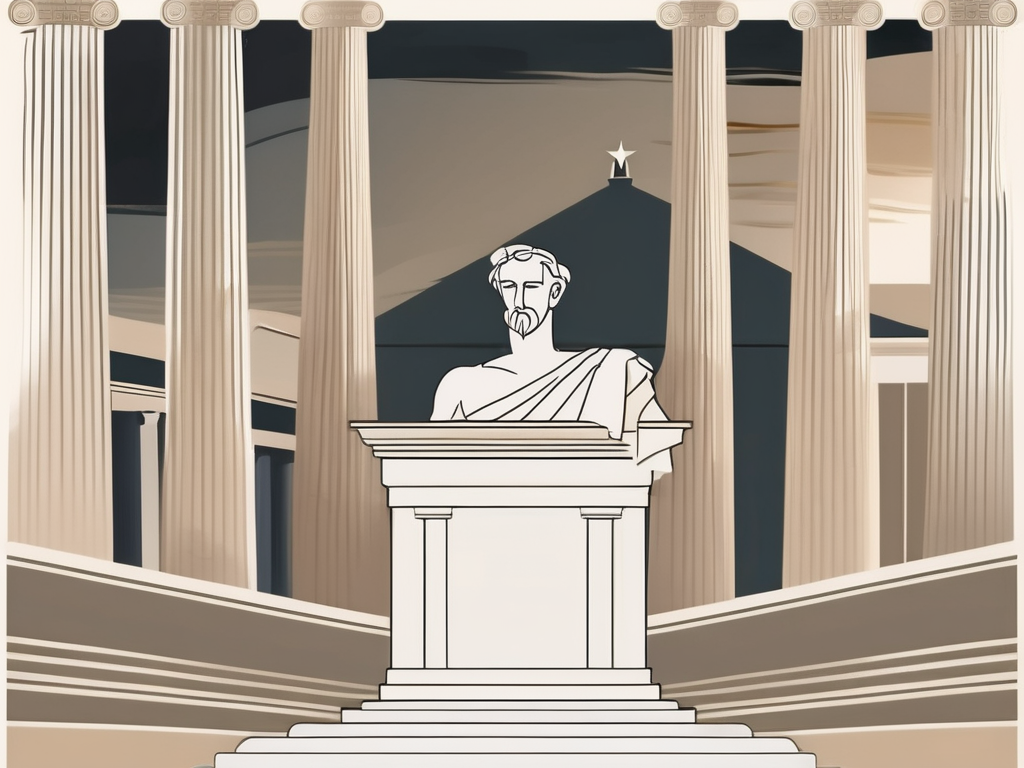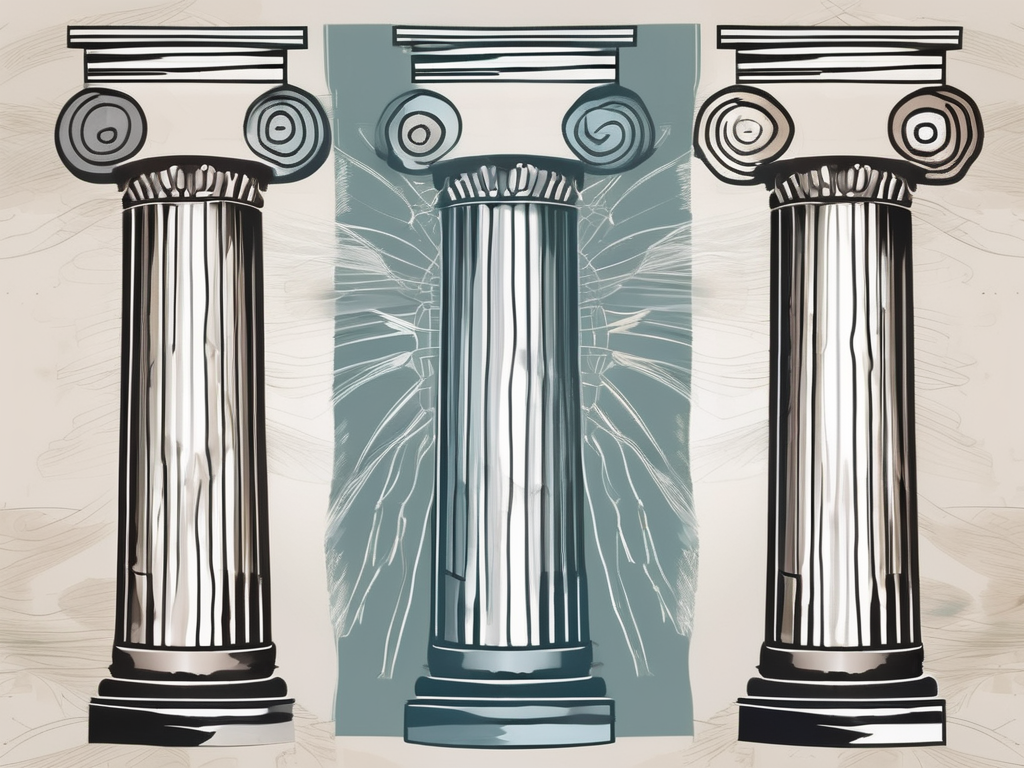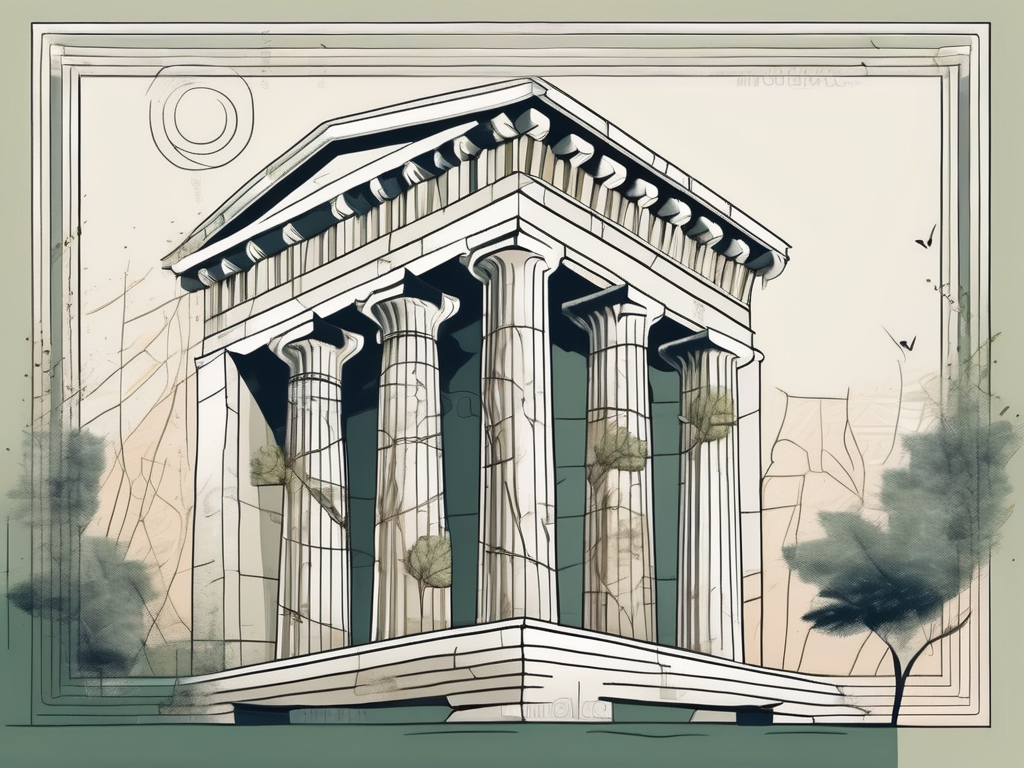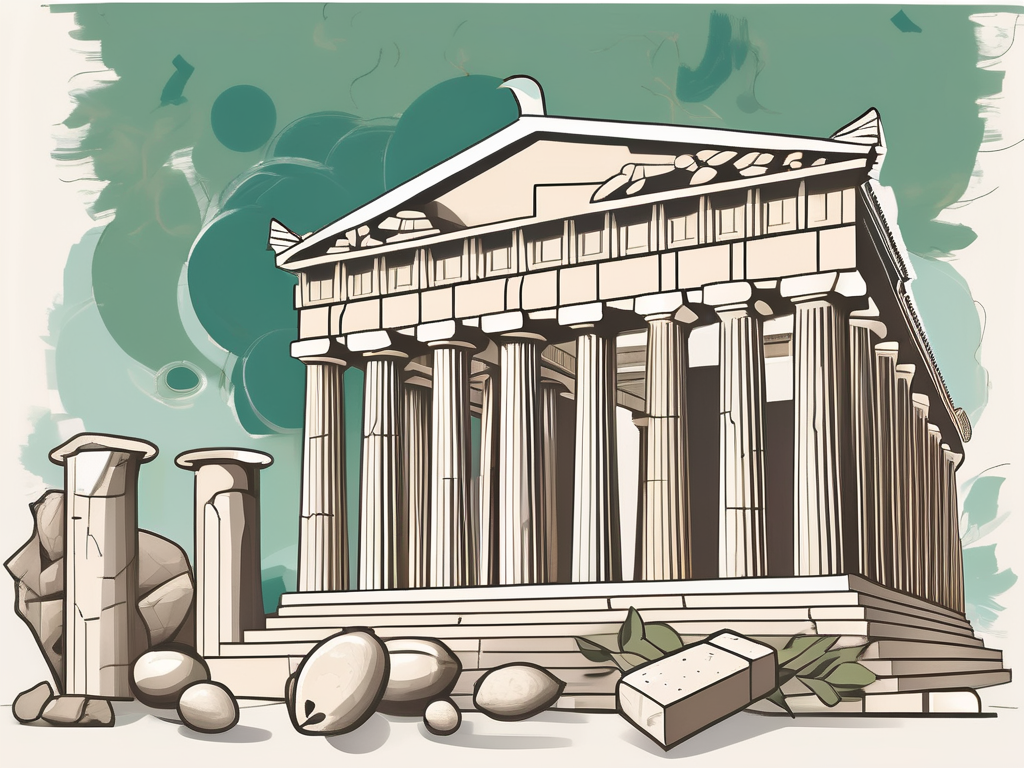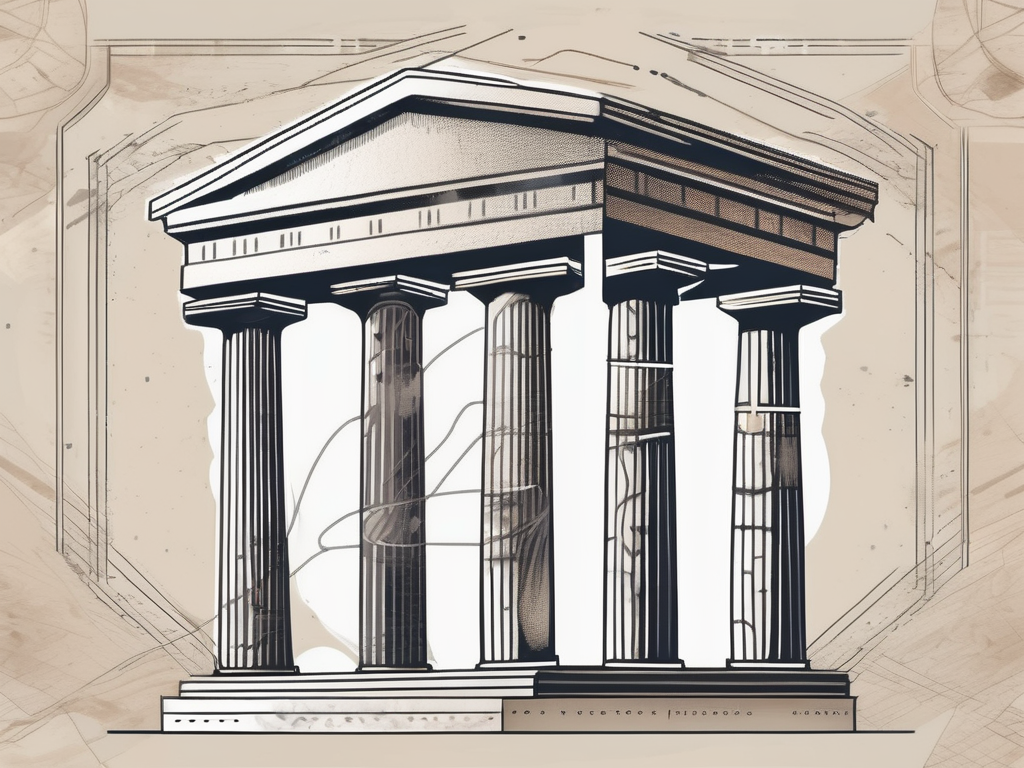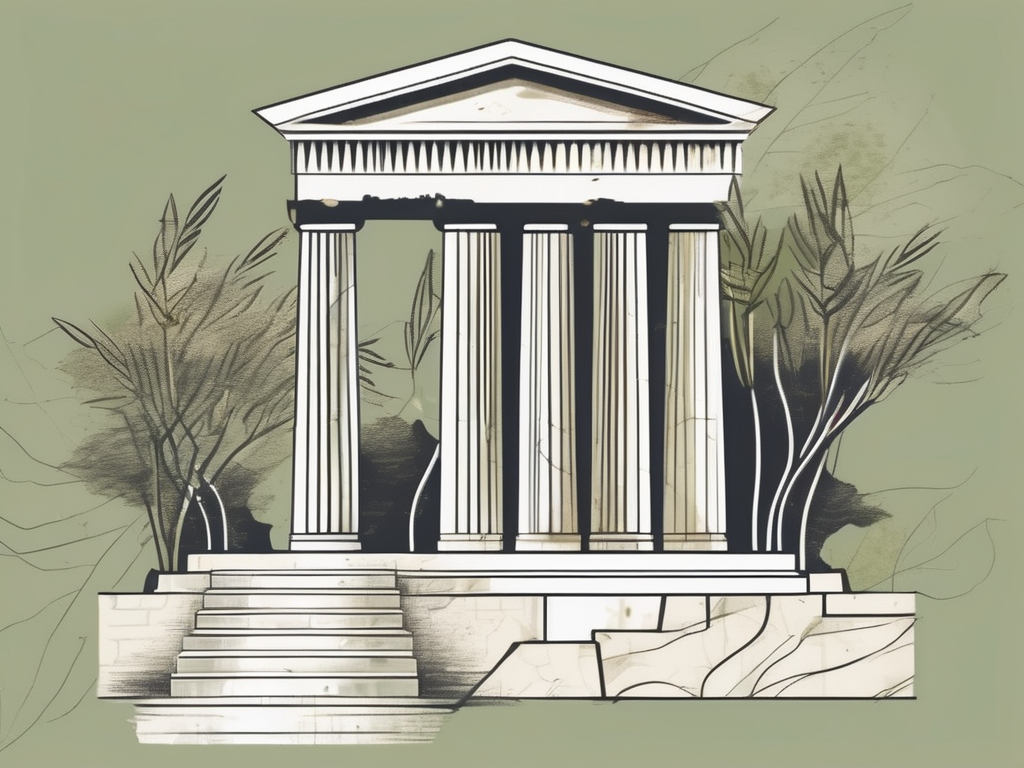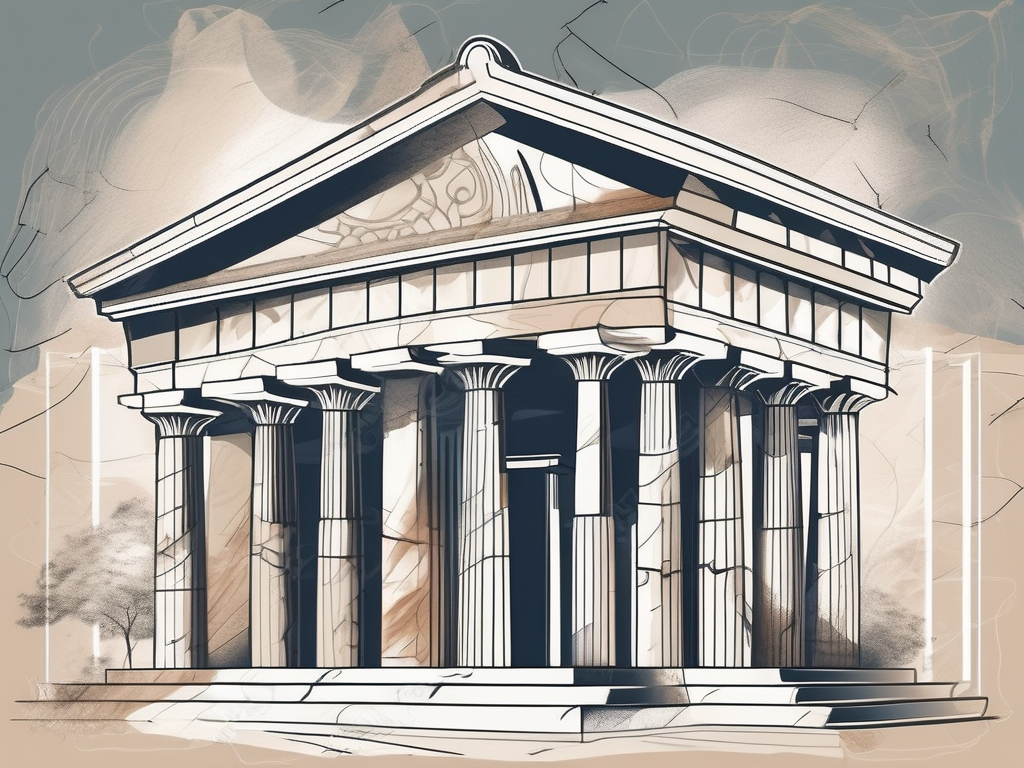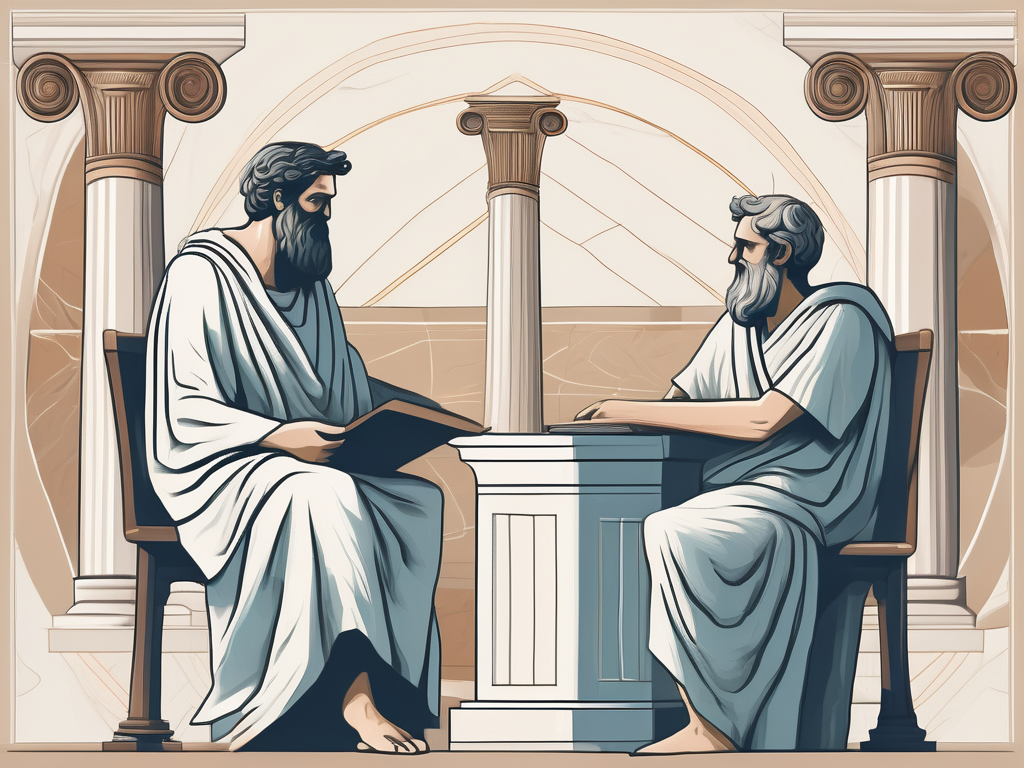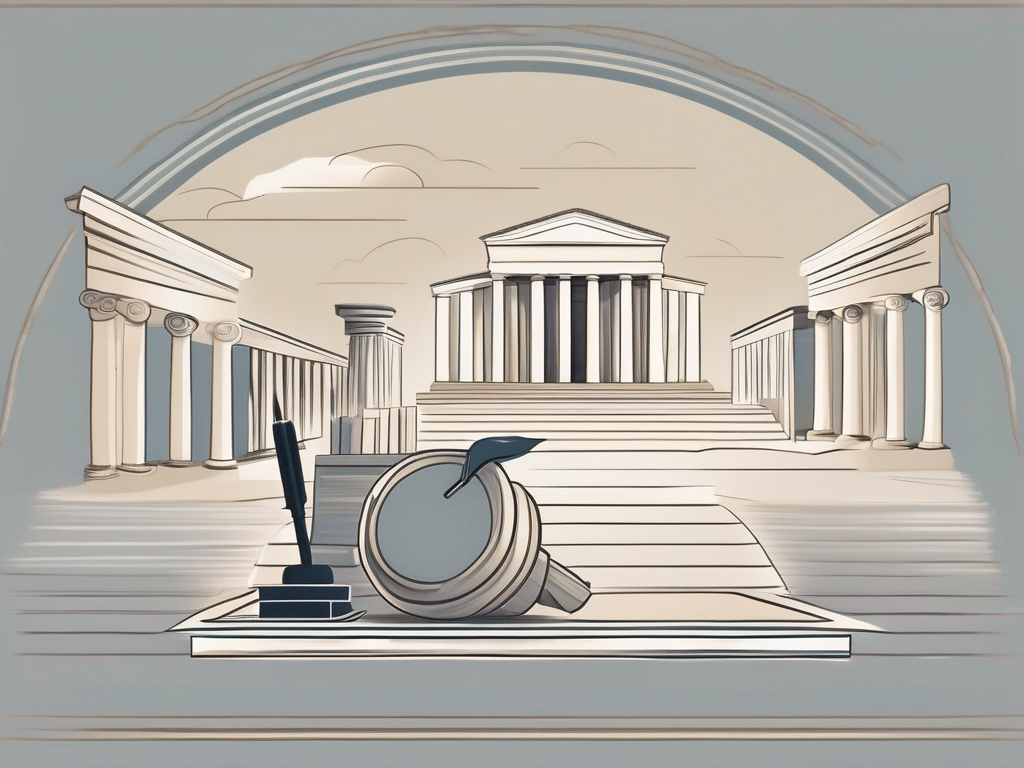Plato, the influential Greek philosopher, is widely regarded as one of the most important figures in Western philosophy. His profound ideas and teachings have shaped the way we think about ethics, politics, and metaphysics. With a keen intellect and a deep understanding of human nature, Plato’s contributions have stood the test of time and continue to resonate even in the modern era.
Understanding Plato’s Early Life
Plato’s journey as a philosopher began with his early life experiences. Born into an aristocratic and influential family in Athens around 427 BCE, Plato was raised with privileges and access to quality education. His mother, Perictione, hailed from a line of prominent politicians, while his father, Ariston, was known for his lineage to the early kings of Athens.
Plato’s education played a crucial role in shaping his philosophical development. He initially studied under the tutelage of Cratylus, a follower of Heraclitus. However, it was his encounter with Socrates that had the greatest impact on his intellectual growth and philosophical leanings.
Birth and Family Background
Born into an aristocratic and influential family in Athens around 427 BCE, Plato’s background provided him with the necessary resources to explore his intellectual curiosity. His family’s prominence allowed him access to individuals in powerful positions, which would prove beneficial in his future pursuits as a philosopher and statesman.
Plato’s family lineage can be traced back to the early kings of Athens, giving him a sense of pride and a deep connection to the city-state’s rich history. Growing up in such a prestigious family, Plato was exposed to the political and social dynamics of Athens from an early age. This exposure would later influence his philosophical ideas and his vision for an ideal society.
Furthermore, Plato’s mother, Perictione, came from a line of prominent politicians. Her influence on Plato’s upbringing cannot be understated, as she instilled in him a sense of civic duty and a passion for public service. This familial background laid the foundation for Plato’s later involvement in politics and his desire to create a just society.
Education and Influences
Plato’s education was diverse and comprehensive. He received training in rhetoric, grammar, music, mathematics, and philosophy. His well-rounded education exposed him to a wide range of disciplines, nurturing his intellectual curiosity and shaping his holistic approach to philosophy.
Under the guidance of Cratylus, a follower of Heraclitus, Plato delved into the study of metaphysics and the nature of reality. This early exposure to philosophical ideas laid the groundwork for his later exploration of abstract concepts and his development of his own philosophical system.
However, it was his encounter with Socrates that would shape the direction of his philosophical journey. Socrates, known for his Socratic method of questioning, challenged Plato’s assumptions and pushed him to think critically about the nature of truth, justice, and the human condition. This intellectual mentorship ignited a passion within Plato and inspired him to pursue philosophy as a lifelong pursuit.
Plato’s relationship with Socrates was not merely that of a student and teacher; it was a deep friendship that lasted until Socrates’ execution. The profound impact of Socrates’ teachings on Plato’s philosophical development is evident in his later dialogues, where he often uses Socrates as the main character to convey his own philosophical ideas.
In conclusion, Plato’s early life experiences, including his aristocratic background and his encounters with influential figures like Socrates, played a pivotal role in shaping his philosophical journey. These formative years laid the foundation for his later contributions to philosophy and his vision for a just and ideal society.
Plato’s Philosophical Journey
Plato’s philosophical journey can be divided into three distinct periods: the Socratic period, the middle period, and the late period. Each phase marked a significant development in his thoughts and provided a fresh perspective on understanding the world and its complexities.
Plato’s Socratic Period
During his early years as a philosopher, Plato was deeply influenced by the teachings of Socrates. Socrates’ emphasis on questioning conventional wisdom and seeking truth through dialogue left a lasting impression on Plato. In his writings from this period, such as “Apology” and “Symposium,” Plato attempts to capture and preserve the essence of Socrates’ teachings.
Plato’s fascination with Socrates’ method of inquiry led him to engage in numerous intellectual debates and discussions with fellow philosophers and thinkers of his time. These intellectual exchanges not only shaped his philosophical ideas but also helped him refine his own unique approach to understanding the world.
Furthermore, Plato’s Socratic period was characterized by his relentless pursuit of knowledge and truth. He dedicated countless hours to studying various subjects, including mathematics, astronomy, and ethics. This broad range of interests allowed him to develop a holistic understanding of the world and its interconnectedness.
Middle Period: Plato’s Own Philosophy
In the middle period of his philosophical journey, Plato developed his own philosophical theories. The most notable concept to emerge during this period was the theory of Forms or Ideas. According to Plato, the physical world we perceive is a mere reflection of the perfect and unchanging realm of Ideas.
Plato’s theory of Forms revolutionized the way philosophers approached the study of reality. It provided a framework for understanding the eternal and unchanging nature of abstract concepts such as beauty, justice, and truth. This concept of Forms laid the foundation for many subsequent philosophical inquiries and debates.
This period also saw the development of Plato’s political philosophy, as evidenced in his seminal work, “The Republic.” In this work, Plato explores the nature of justice and advocates for a utopian society led by philosopher-kings. He delves into the intricacies of governance, education, and the ideal social structure, presenting a vision that continues to inspire political thinkers to this day.
Late Period: Criticism and Revision
In the late period of his life, Plato engaged in critical examination and revision of his earlier ideas. He delved into metaphysics, cosmology, and the nature of the human soul. Works such as “The Laws” and “The Statesman” underscore his philosophical exploration during this phase.
During this period, Plato’s focus shifted towards exploring the relationship between the physical world and the realm of Ideas. He sought to reconcile his earlier theories with new insights and experiences, leading to a more nuanced understanding of reality. Plato’s late period writings reflect his intellectual maturity and the evolution of his philosophical thought.
Furthermore, Plato’s late period was marked by his contemplation of the human condition and the nature of existence. He delved into questions of morality, ethics, and the purpose of life. Plato’s exploration of these profound topics continues to resonate with readers and philosophers alike, inviting introspection and self-reflection.
In conclusion, Plato’s philosophical journey was a remarkable odyssey of intellectual growth and exploration. From his early encounters with Socrates’ teachings to the development of his own profound theories, and finally, the critical examination and revision of his ideas, Plato’s contributions to philosophy continue to shape our understanding of the world and our place in it.
Plato’s Major Works and Contributions
Plato’s major works played a pivotal role in shaping the trajectory of philosophical thought for centuries to come. His contributions covered a wide array of philosophical topics and presented profound insights into the human condition.
The Republic
“The Republic” is arguably Plato’s most influential work. In it, he envisages an ideal society governed by philosopher-kings who possess knowledge of the Forms and uphold justice. This groundbreaking treatise continues to inspire debates on political theory and the nature of governance.
Symposium and Phaedrus
“Symposium” and “Phaedrus” explore the nature of love and desire. These dialogues present different perspectives on love, highlighting the complex and multifaceted aspects of human relationships. Plato’s ideas on love have left an indelible mark on literature and continue to resonate with readers across various cultures.
The Laws and The Statesman
In “The Laws” and “The Statesman,” Plato examines the nature of law, leadership, and governance. These works provide valuable insights into the complexities of forming and maintaining just societies. Plato’s treatises on politics continue to be studied and debated by scholars worldwide.
Plato’s Impact on Philosophy
Plato’s influence on Western philosophy cannot be overstated. His ideas continue to permeate the realms of ethics, metaphysics, and epistemology. The legacy of his teachings can be seen in countless philosophical debates and discussions.
Influence on Western Philosophy
Plato’s philosophy laid the foundation for Western thought. His theories on forms, knowledge, and morality influenced great thinkers such as Aristotle and Descartes. Even centuries later, philosophers like Kant and Nietzsche engaged with his ideas, further cementing his philosophical legacy.
Plato’s Philosophy in Modern Times
Plato’s philosophy remains relevant in the modern era. His exploration of justice, governance, and the nature of reality continues to inspire deep reflection and critical analysis. His works serve as a guiding light for those seeking to understand the complex nature of the human experience.
Plato’s Academy
Plato’s Academy holds a significant place in the history of education. It was founded by Plato around 387 BCE and is considered one of the earliest known organized institutions dedicated to higher learning. The Academy provided a platform for young minds to engage in philosophical debates and explore various disciplines.
Founding and Purpose of the Academy
The Academy was established by Plato with the aim of nurturing intellectual curiosity and promoting the pursuit of wisdom. It served as a meeting place for philosophers, scholars, and students alike, fostering a vibrant environment conducive to learning and intellectual growth.
Notable Students and Scholars
The Academy attracted many notable students and scholars. Aristotle, Plato’s most famous student, went on to become a renowned philosopher in his own right. Other influential minds, such as Xenocrates and Speusippus, also passed through the hallowed halls of the Academy, contributing to the development and spread of Platonic philosophy.
In conclusion, Plato’s influence as a Greek philosopher is undeniable. His profound ideas and philosophical journey have left an indelible mark on the fabric of human intellectual exploration. From his early encounters with Socrates to his establishment of the Academy and his timeless works, Plato’s legacy continues to inspire and challenge us, making him a truly influential figure in the history of Western philosophy.
